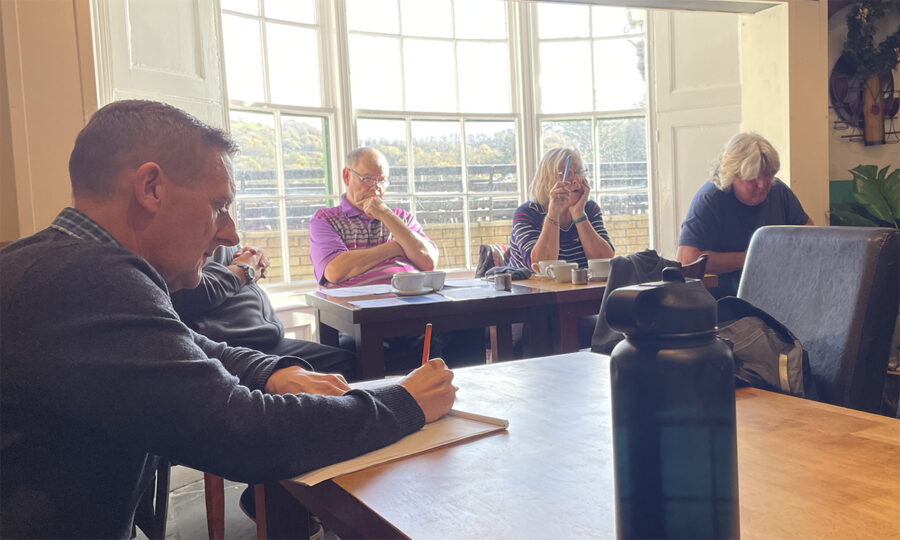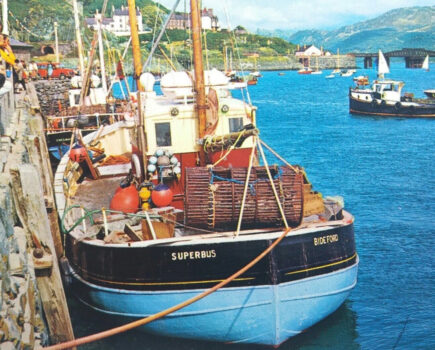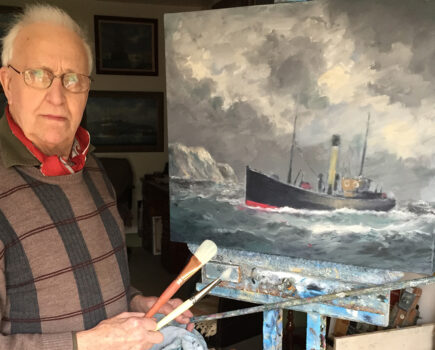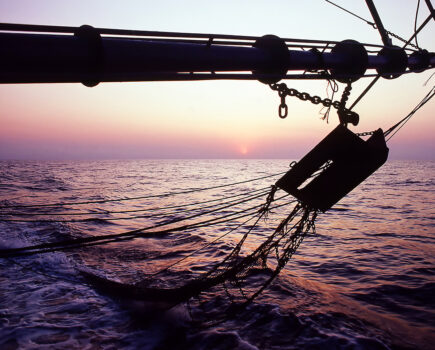Fiona Birch reports on progress towards a stakeholder-led future for UK shellfisheries
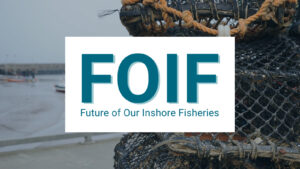
Fisheries featured prominently in the 2020 Brexit debate before the UK left the EU and the Common Fisheries Policy. Since then, a considerable amount of work has been happening behind the scenes to build a new fisheries management system for the UK.
With this has come a hefty supply of new fisheries management terminology – Fisheries Management Plans, non-quota species (NQS) and the Shellfish Industry Advisory Group, to name just a few. So when it comes to managing our nationally important shellfish stocks, how did we get from the Christmas Eve Brexit deal to where we are today?
The first conversations with the industry around reforming UK fisheries took place back in October 2019 at the trail-blazing Future of Our Inshore Fisheries Conference. Nearly 200 fishing industry stakeholders met with scientists, regulators and government representatives to brainstorm a ‘business plan’ that would secure the sustainability of our nationally important fisheries and promote stakeholder buy-in.

Discussion underway at a Crab and Lobster FMP stakeholder engagement meeting in November.
A core learning from the conference was a strong appetite for collaborative management or co-management – in short, drawing on the vital expertise and experience of active fishermen, by enabling and supporting them to participate in management decisions.
In the wake of the ground- breaking conference and the UK’s decision to leave the EU, Defra has set about establishing a work programme that aims to restore and/or maintain fish stocks at sustainable levels, while supporting coastal communities.
The programme includes the creation of cross-sector groups to strengthen collaboration with fishermen, and the development of new tools for delivering improvements in how stocks are managed, known as Fisheries Management Plans (FMPs).
The UK shellfish industry produced £244m in 2020 alone, making it one of the country’s most profitable fishing sectors. Furthermore, shellfish support countless jobs, communities and local businesses that rely on these fisheries. Part of the work to develop FMPs has been considering the social value and importance of a thriving local fishing industry – this can be hard to quantify, but is of no lesser importance.
The industry-led Shellfish Industry Advisory Group (SIAG) is working to secure a sustainable future for UK shellfisheries and the local communities that they support, by driving improvements in how key stocks are managed post-Brexit. The SIAG was established back in November 2019 by Seafish in collaboration with organisations such as the NFFO and the Shellfish Association of Great Britain.
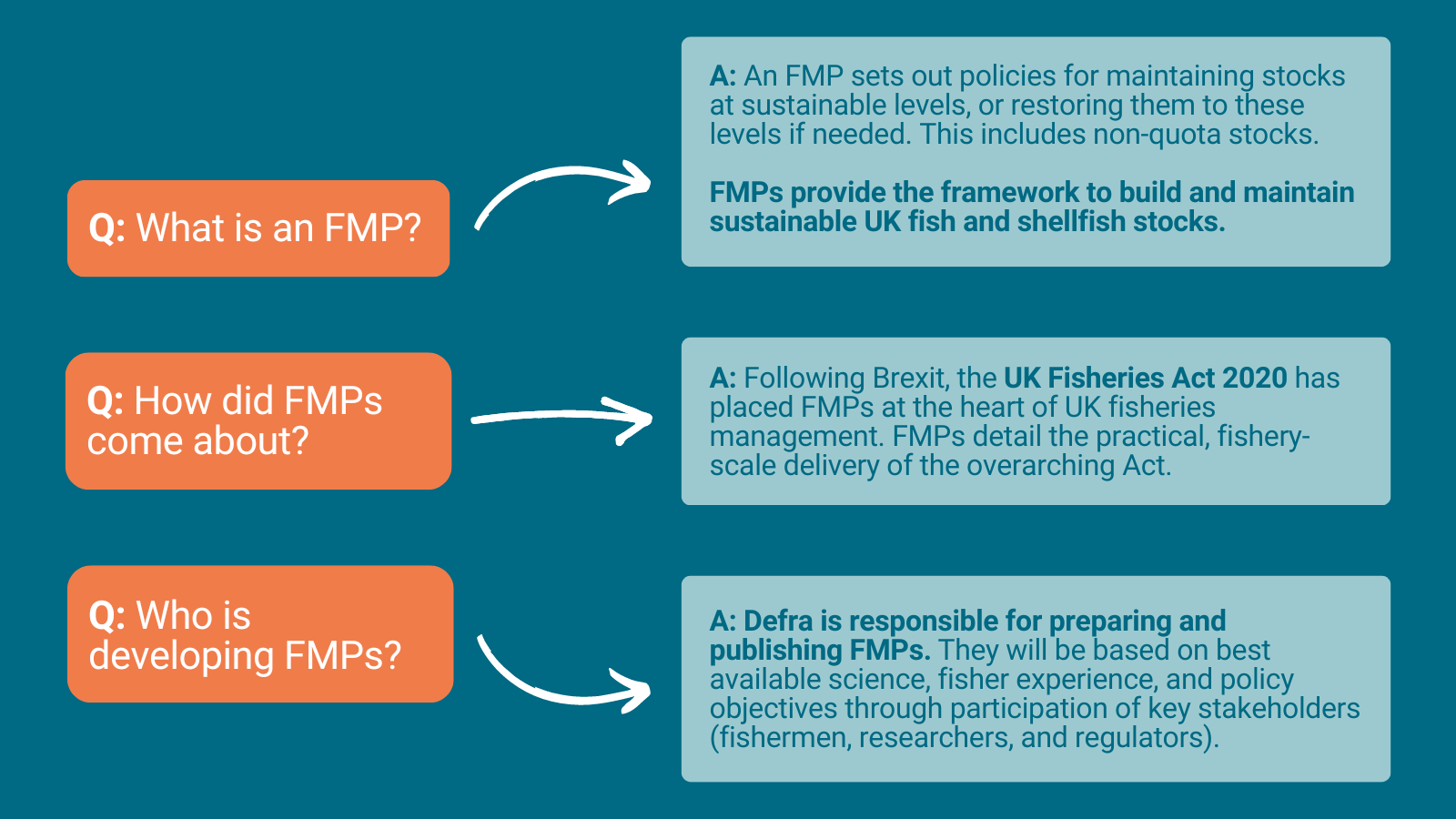
A quick guide to FMPs. (Images: Future of Our Inshore Fisheries)
Barrie Deas, chief executive of the NFFO and current chair of the SIAG, said: “The Shellfish Industry Advisory Group has collaboration at its heart. It looks to tackle the challenges of managing commercially important shellfisheries in a sustainable way, harnessing the views of fishermen, regulators and researchers.
“Last year, our attention was on drafting a set of common shellfish objectives that will be included in the crab, lobster, whelk and king scallop Fisheries Management Plans. This set of strategic objectives will drive the management of all shellfish fisheries going forward and cover the overarching issues relevant to all fisheries, such as ensuring the shellfish sector is appropriately engaged on marine planning issues, promoting trade opportunities and addressing welfare issues.”
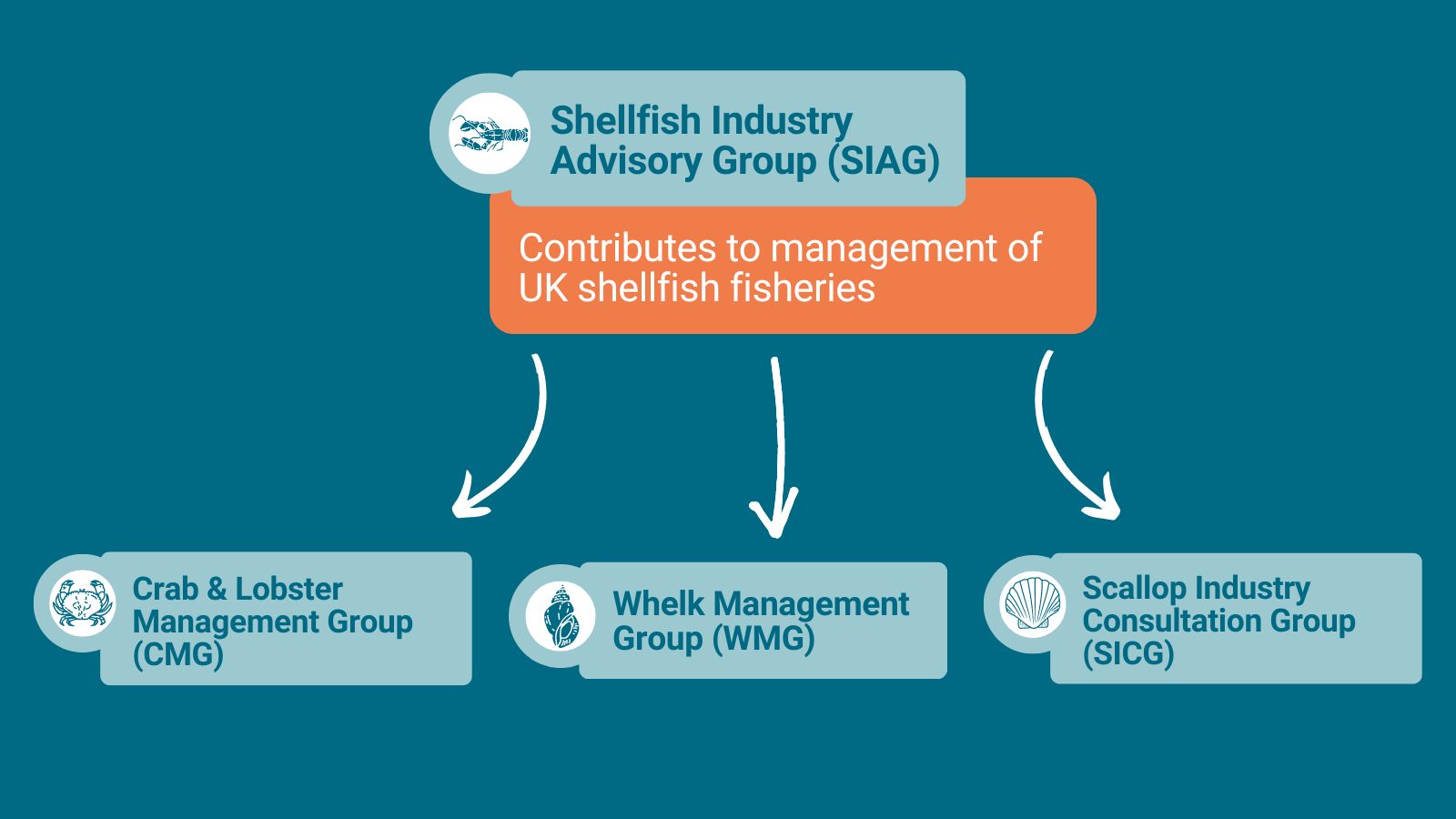
Structure of the Shellfish Industry Advisory Group (SIAG) and its constituent sub-groups.
Under the remit of the SIAG, the Crab and Lobster Management Group and Whelk Management Group focus exclusively on crab, lobster and whelk stocks in England, while the Scallop Industry Consultation Group concentrates on king scallop stocks in both England and Wales. Each group has attracted between 50 and 100 members, consisting mainly of fishermen and industry representatives, and welcomes new members.
In the past year, significant steps have been taken to open up the fisheries management conversation. A series of crab, lobster, whelk and king scallop FMP stakeholder engagement events took place throughout the country last autumn to gather feedback from all stakeholders, particularly fishermen, on how they wish to shape shellfish management in the years to come.
Over 500 stakeholders attended the events, and their feedback has been channelled directly into the draft shellfish FMPs, which will go out to public consultation in the spring.
When it comes to reforming the management of UK fisheries, much has changed since those first conversations at the Future of Our Inshore Fisheries Conference. Fishermen are increasingly being recognised for their vital and valuable knowledge of stocks, and as custodians of the sea. Clear pathways have been created for fishers to engage in the future of their industry, and to shape the management decisions that impact their careers and livelihoods. They have been given a permanent seat at the fisheries management table.
Want to learn more about UK shellfisheries management or ways to get involved? Contact the Seafish Fisheries Management Team at: fisheriesmanagementplans@seafish.co.uk.
This story was taken from the latest issue of Fishing News. For more up-to-date and in-depth reports on the UK and Irish commercial fishing sector, subscribe to Fishing News here or buy the latest single issue for just £3.30 here.

